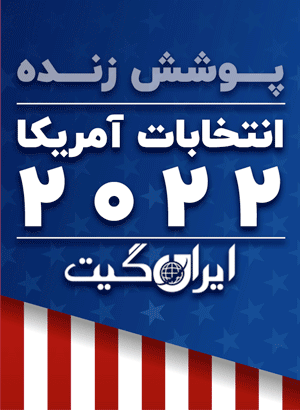A festival that didn’t reach dawn
According to Iran Gate, the 41st annual Iranian Cinema Festival, which is held every year during the anniversary of the revolution, was emptier and less vibrant than ever this year, hence the name ‘didn’t reach dawn’.
The sanctions on prominent artists, from actors to directors and other cinema professionals, due to the bitter events of the women’s movement, have unprecedentedly affected the prosperity of this festival. There were no notable works and the cinema enthusiasts and audience, as usual, did not fill the cinemas and create a cinematic atmosphere in the cities. These controversies overshadowed the festival from beginning to end, including the closing ceremony.
Different interpretation by the Deputy of Cinema
Mohammad Khazaee visited the Mellat Media Center on the fourth day of the Fajr Film Festival and, upon arrival, spoke to reporters about the efforts of opposition media and propaganda to marginalize the festival. He mentioned that this year’s festival was challenging but thankfully it is being held with great splendor. He added that the excellent planning by Mojtaba Amini, the festival secretary, and his colleagues, along with the support of the cinema community, media professionals, and the public, all coming together, made this happen. All the predictions made by some friends were shattered.
The head of the Cinematic Organization emphasized that this magnificent festival is not only taking place at the Mellat Media Center but also in cinemas across the country, especially in Tehran. Perhaps our audience percentage has increased compared to previous years, and it is becoming more successful day by day. These events are among the achievements of this period of the festival, and there are many good things to come.
The impact of the unprecedented arrest of cinema artists
A large number of prominent actors, especially women who are protesting and associated with the Women’s Freedom Movement, were influential in the formation of the boycott of the festival. However, the arrest of Taraneh Alidoosti not only led to the position-taking of many festivals and famous cinema figures around the world, but also raised doubts about the necessity of boycotting the Fajr Film Festival. Mani Haghighi and Rasoul Sadr-Ameli, two well-known filmmakers, have raised this possibility in two different ways.
On the other hand, it seems that the way Ali Dovesti was treated has created a kind of unity among filmmakers. Some of the most famous filmmakers gathered in front of Evin prison for four consecutive days to inquire about his detention. At the same time, the efforts of some government supporters to link a Twitter account to Traneh Alidosti apparently reinforced previous suspicions about the security origins of these suspicious accounts, and apparently the case against this actor detained with other filmmakers is different.
Samieh Mirshamsi, an assistant director who played a key role in the formation of the 800 Women’s Movement to combat sexual harassment in Iranian cinema with the disclosure of violence and sexual harassment behind the scenes a few months ago, announced in a tweet series that Traneh Alidosti has been in solitary confinement and under pressure.
Security culture
Recent statements by Mohammad Mehdi Esmaeili, the Minister of Guidance, who said that the Supreme National Security Council and the National Security Council are following up on the return of cultural and artistic activities to normal, revealed that the cultural sphere of the country has become more than ever a security issue for the Islamic Republic, and the involvement of other intelligence institutions is not limited to the desired productions of the system.
However, for years, the shadow of security and security organizations has weighed heavily on the cinema industry, and perhaps this sense of insecurity began with Saeed Emami’s presence in the Ministry of Intelligence. Later, we witnessed it with significant social and political changes. The security organizations were a constant obstacle to the production of custom products, and they were not very enthusiastic. From gold necklaces to the film ‘Zero Day’ commissioned by the Ministry of Intelligence, even the seemingly cultural institution of the Revolutionary Guards tried its best to control the security space and not be left behind in competition with the Ministry. They claimed to be active in the cinema and cultural scene with some less notable works, such as the evening parties and collaboration with directors like Hatamikia.
The closing ceremony that marked the end of the festival.
From Mohammad Khazaei, the head of the Cinema Organization, shedding tears and expressing grief, to the cold reaction and lackluster response of the Simorgh Award winner for Best Actress to the absence of candidates and notable winners like Ali Nasirian, the closing ceremony of the festival was completed. Of course, the program host could not lighten the dark atmosphere of this event with his jokes and amusing remarks.
But the main and important message was that cultural and artistic components, such as cinema, without the people and free artists, are similar to everything except for a government-controlled artistic project. The heavy defeat of the government cinema project made policymakers and supervisors realize that this field has no capacity for mandatory do’s and don’ts. And if they insist on imposing a security-oriented approach, like other fields, and have the illusion of managerial control, they will end up with festivals and cinemas that are devoid of hope and life, perhaps named Fajr, but its symbol will be darkness.


